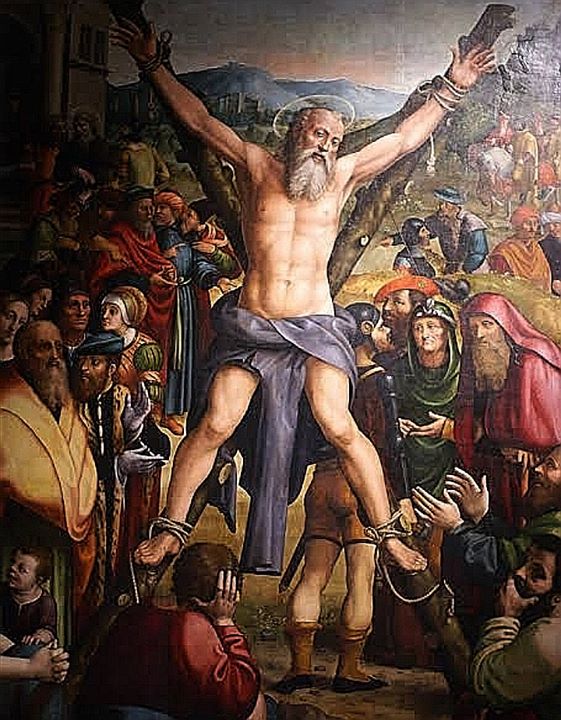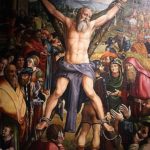
MARTYRDOM OF ST. ANDREW THE APOSTLE (SAN ANDREAS) (60-70 AD)
(St. Andrew the Apostle vs. Aegas the Roman Governor)
According to tradition, Andrew—who was Peter’s brother and the first follower of Jesus—preached the gospel in the region North of the Black Sea and in various parts of Greece. His life ended in the Greek city of Patras. He was crucified by Aegeas, the governor of the region at the time. When Aegeas the governor heard about this, he came to Patras to put an end to the Christian movement there. To do this, he enforced a legal requirement that everyone worship the Roman gods by making sacrifices to them. Andrew immediately decided to resist Aegeas and went to address him directly.
ST. ANDREW THE APOSTLE: “It would be wise for someone who judges men to know the One who is his Judge—the One who lives in heaven. And once you have known Him, you will worship Him, since He is the One true God. In so doing, this judge of men will turn his mind away from false gods and blind idols.”
AEGAS THE GOVERNOR: Are you the same Andrew that overthrew the temple of the gods? Are you the same Andrew that goes around persuading men to believe in superstitions which Rome has abolished? I have been commanded to put an end to such teaching.”
ST. ANDREW THE APOSTLE: “The Son of God came from heaven into the world for man’s sake. He taught us that these idols you honor as gods are not only not gods, but are actually cruel demons. They are enemies to mankind, and they teach people nothing except things which offend God. As a result, these people fall into all kinds of wickedness, and when they die, they have nothing to offer to God but evil deeds.”
(The governor was not appeased by what Andrew had to say. Instead, he commanded Andrew to quit teaching and preaching these things immediately. If he refused, he would be fastened to the cross at once.)
ST ANDREW THE APOSTLE: “I would not preach the honor and glory of the cross if I feared the death of the cross.”
(The sentence of death was pronounced, and Andrew was taken away to be crucified for denying the religion of the Roman gods. Because crucifixion was an especially cruel and painful death, men who faced it often lost their minds from fear. They would frequently faint when they saw the cross. Andrew, however, didn’t even pale. Instead, out of his deep love for Christ)
ST. ANDREW THE APOSTLE: “O most beautiful cross that was glorified by carrying the body of Christ! Glorious cross, sweetly desired, ardently loved, always sought, and finally prepared for my heart that has so long awaited you. Take me, o cross! Embrace me. Release me from my life among men. Bring me quickly and diligently to the Master. Through you He will receive me, He, Who through you has saved me.”
-St. Andrew the Apostle (60-70 AD)



Comments